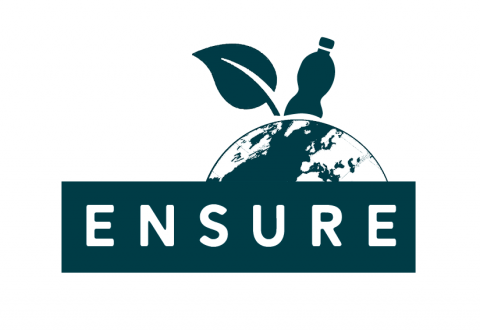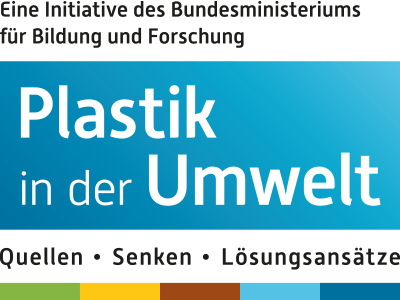ENSURE
ENSURE

Prof. Dr. habil. Marc Kreutzbruck
University of Stuttgart
Institute for Plastics Technology / IKT
Pfaffenwaldring 32
70569 Stuttgart
phone: +49 711 685 62812
e-mail: marc.kreutzbruck@ikt.uni-stuttgart.de
Within the framework of this project, plastics with environmentally optimised decomposition behaviour were developed, which can degrade faster and in a more eco-friendly manner while maintaining the same stability. Furthermore, innovative methods were developed for (i) the quantification and characterisation of recent sources and sinks in the terrestrial sector, ii) the biological degradation of relevant plastics, and iii) the analysis of social perceptions and behaviour patterns.
Main areas of work
- Characterisation of relevant sources and sinks as well as area coverage in the terrestrial /semi-terrestrial range ("Traceability")
- Development of environmentally-friendly plastics
- Investigation of the physical, chemical and biological stability of environmentally relevant plastics and testing of novel plastics through demonstration and practical tests ("Optimisability")
- Investigation of the effect of plastics on soil meso- and microfauna and on the biodegradability of plastics in substrates ("Degradability and environmental compatibility")
- Using transdisciplinary research practices as a basis for developing actor-related strategies to promote sustainable use of plastic products ("Perception and behaviour")
WP 1 Traceability
Contact person
Dr. Mathias Bochow, Helmholtz Centre Potsdam GFZ German Research Centre for Geosciences, Telegrafenberg, 14473 Potsdam, e-mail: matthias.bochow@gfz-potsdam.de
Dr. Claus Gerhard Bannick, Federal Environmental Agency, Corrensplatz 1, 14195 Berlin, e-mail: clausgerhard.bannick@uba.de
Project partner
University of Stuttgart IKT, UBA
Short description
In the "Traceability" module, undesirable plastic inputs in prioritised sectors (soils, wastewater treatment plants, composting plants and biogas plants) were detected and identified. In a first step, sampling strategies were developed so that in a second step representative investigations can be carried out to determine the current states of plastics in fermentation, compost and wastewater treatment plants. In addition, plastics in the environment were surveyed nationwide. Airborne exploration methods (remote sensing) were used for mapping. The aim was to develop a multi-sensor system for quantifying and qualifying the potential environmental impact of plastics.
WP 2 Optimisability
Contact person
Prof. Dr. habil. Marc Kreutzbruck, University of Stuttgart, Institute of Plastics Technology, Pfaffenwaldring 32, 70569 Stuttgart, e-mail: marc.kreutzbruck@ikt.uni-stuttgart.de
Project partner
BAM
Short description
Within the scope of the module "Optimisability" relevant plastics (PE, PET and PBAT) were designed sustainably with regard to their degradation behaviour by using suitable additives/modifiers, i.e. they should exhibit an optimised degradation behaviour. For this purpose, the plastics were to be compounded with specifically switchable additives. In order to cover the entire value-chain, these materials should be able to be processed into semifinished products using standard plastics fabrication technologies. In practice, semi-finished plastic products are sealed or two parts are joined together. Therefore, the weldability of the newly developed materials based on ultrasonic joining processes was investigated and ensured.
WP 3 Degradability and environmental compatibility
Contact person
Dr. Ulrike Braun, Federal Institute for Materials Research and Testing, Unter den Eichen 87, 12205 Berlin, e-mail: ulrike.braun@bam.de
Prof. Dr. Dirk Wagner, Helmholtz Centre Potsdam - GFZ German Research Centre for Geosciences, Telegrafenberg, 14473 Potsdam, e-mail: dirk.wagner@gfz-potsdam.de
Project partner
University of Stuttgart IKT, UBA, Osnabrück University IUSF, TUB
Short description
The "Degradability and environmental compatibility" module included work on the mechanical understanding of plastic and polymer degradation. Under various environmental conditions, relevant degradation processes were assessed. The aim was to evaluate the degradation behaviour of the materials developed.
WP 4 Perception and behaviour
Contact persons
Prof. Dr. Ortwin Renn and Dr. Katharina Beyerl, Institute for Advanced Sustainability Studies (IASS), Berliner Straße 130, 14467 Potsdam, e-mail: ortwin.renn@iass-potsdam.de; katharina.beyerl@iass-potsdam.de
Project partner
University of Stuttgart IKT, UBA, Osnabrück University IUSF, TUB, GFZ, BAM
Short description
The module "Perception and behaviour" supported the research of human motivations for the handling of plastic as well as the development of recommendations for behavioural offers and communication content to reduce plastics in the environment. Triangulation of related research methods was used for this purpose. By means of expert interviews, focus groups, qualitative in-depth interviews and an online survey with selected target groups, the current patterns of perception and behaviour in dealing with plastics were collected and analysed.
